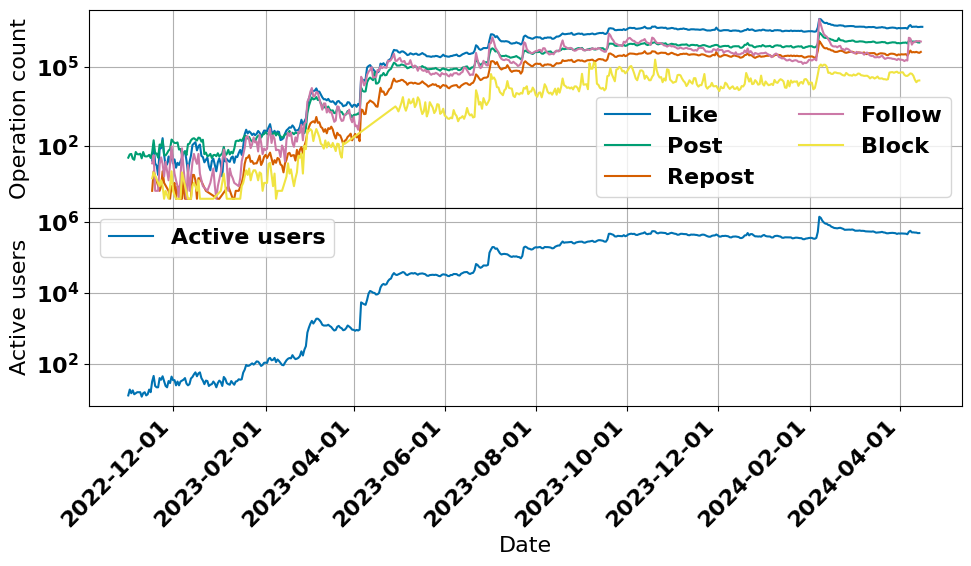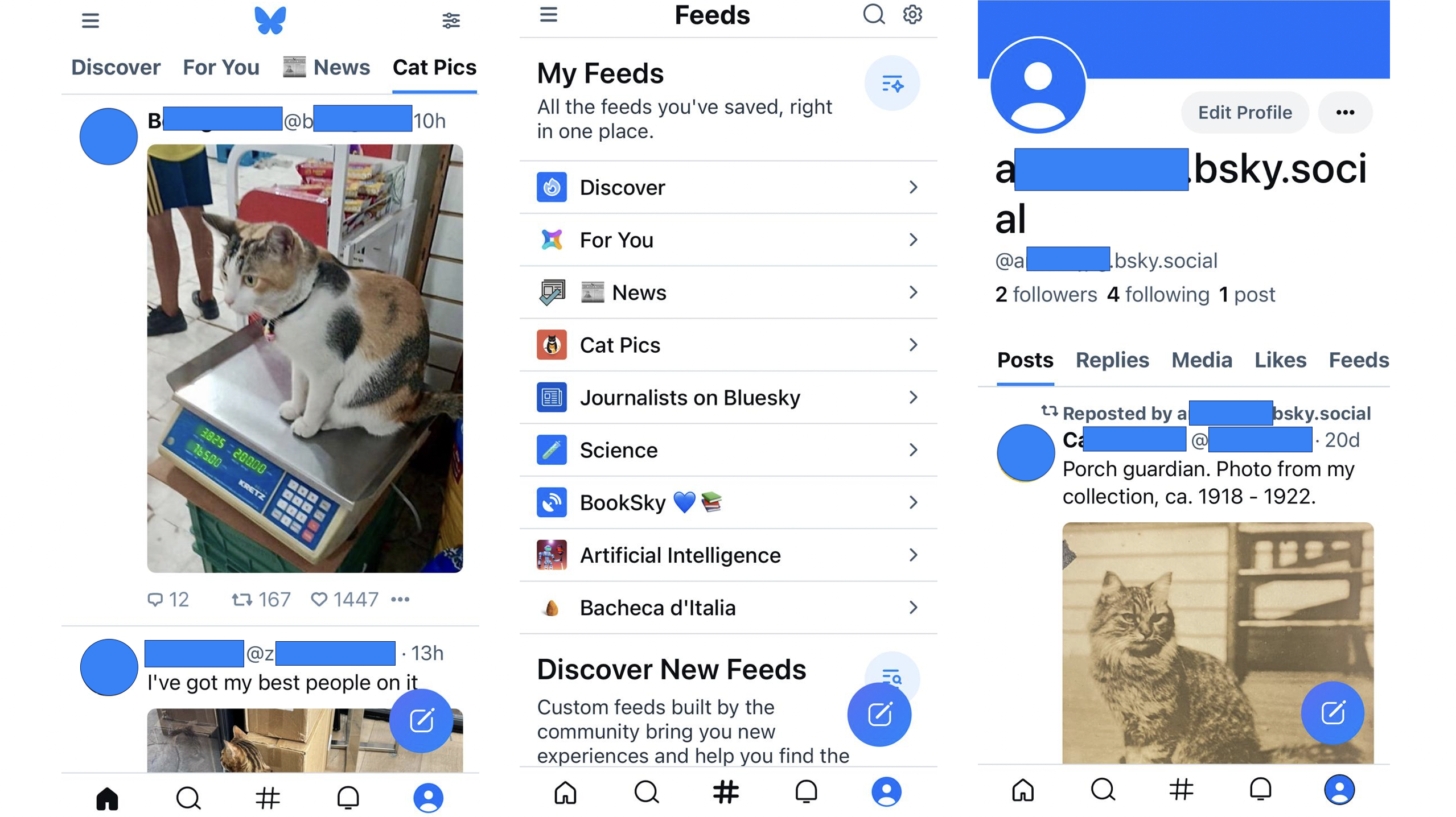Looking AT the Blue Skies of Bluesky

0

Sign in to get full access
Overview
- This paper explores the potential of Bluesky, a decentralized social networking protocol, to address challenges faced by traditional social media platforms.
- The researchers analyze datasets and provide insights into the Bluesky ecosystem, user behavior, and the implications for free speech and user agency online.
- The paper presents a technical explanation of Bluesky and its architecture, as well as a critical analysis of the limitations and future research directions.
Plain English Explanation
The paper examines Bluesky, a new approach to social networking that aims to be more decentralized and give users more control over their online experiences. The researchers look at data and information about how Bluesky is being used, including insights into the types of people and conversations happening on the platform.
The key idea behind Bluesky is to create a social network that is not controlled by a single company or organization. Instead, it is built on a distributed, open-source technology that allows users to have more say in how their data is managed and shared. The researchers explore how this could impact issues like online free speech and user agency on social platforms.
Overall, the paper provides an in-depth look at this new approach to social networking and the potential implications, both positive and negative, for how people connect and communicate online.
Technical Explanation
The paper begins by introducing Bluesky, a decentralized social networking protocol that aims to give users more control over their data and online experiences. The researchers analyze several datasets related to Bluesky, including information about the user base, network structure, and temporal dynamics of the platform.
The technical details of the Bluesky architecture are covered, including its use of decentralized technologies like ActivityPub and peer-to-peer networking. The researchers also examine how this decentralized approach affects user agency and free speech online, compared to traditional social media platforms.
Critical Analysis
The paper acknowledges several limitations of the Bluesky ecosystem, including the potential for fragmentation and challenges in content moderation within a decentralized network. The researchers also note that further research is needed to understand the long-term sustainability and user adoption of Bluesky.
Additionally, the paper raises questions about the diversity of the Bluesky user base and whether the platform truly enables grassroots social networking or creates new barriers to participation.
Conclusion
The paper provides a comprehensive analysis of the Bluesky decentralized social networking protocol, highlighting its potential to address the challenges faced by traditional social media platforms. The researchers offer insights into the Bluesky ecosystem, user behavior, and the implications for online free speech and user agency.
While the paper identifies several limitations and areas for further research, it suggests that Bluesky and similar decentralized approaches to social networking could be an important step towards a more grassroots, user-centric future of online communication and collaboration.
This summary was produced with help from an AI and may contain inaccuracies - check out the links to read the original source documents!
Related Papers


0
Looking AT the Blue Skies of Bluesky
Leonhard Balduf, Saidu Sokoto, Onur Ascigil, Gareth Tyson, Bjorn Scheuermann, Maciej Korczy'nski, Ignacio Castro, Micha{l} Kr'ol
The pitfalls of centralized social networks, such as Facebook and Twitter/X, have led to concerns about control, transparency, and accountability. Decentralized social networks have emerged as a result with the goal of empowering users. These decentralized approaches come with their own tradeoffs, and therefore multiple architectures exist. In this paper, we conduct the first large-scale analysis of Bluesky, a prominent decentralized microblogging platform. In contrast to alternative approaches (e.g. Mastodon), Bluesky decomposes and opens the key functions of the platform into subcomponents that can be provided by third party stakeholders. We collect a comprehensive dataset covering all the key elements of Bluesky, study user activity and assess the diversity of providers for each sub-components.
Read more8/23/2024
🗣️

0
Decentralized Social Networks and the Future of Free Speech Online
Tao Huang
Decentralized social networks like Mastodon and BlueSky are trending topics that have drawn much attention and discussion in recent years. By devolving powers from the central node to the end users, decentralized social networks aim to cure existing pathologies on the centralized platforms and have been viewed by many as the future of the Internet. This article critically and systematically assesses the decentralization project's prospect for communications online. It uses normative theories of free speech to examine whether and how the decentralization design could facilitate users' freedom of expression online. The analysis shows that both promises and pitfalls exist, highlighting the importance of value-based design in this area. Two most salient issues for the design of the decentralized networks are: how to balance the decentralization ideal with constant needs of centralization on the network, and how to empower users to make them truly capable of exercising their control. The article then uses some design examples, such as the shared blocklist and the opt-in search function, to illustrate the value considerations underlying the design choices. Some tentative proposals for law and policy interventions are offered to better facilitate the design of the new network. Rather than providing clear answers, the article seeks to map the value implications of the design choices, highlight the stakes, and point directions for future research.
Read more6/12/2024


0
How Decentralization Affects User Agency on Social Platforms
Aditya Surve, Aneesh Shamraj, Swapneel Mehta
Mainstream social media platforms function as walled garden ecosystems that restrict user agency, control, and data portability. They have demonstrated a lack of transparency that contributes to a multitude of online harms. Our research investigates how decentralization might present promise as an alternative model to walled garden platforms. Specifically, we describe the user-driven content moderation through blocks as an expression of agency on Bluesky, a decentralized social platform. We examine the impact of providing users with more granular control over their online experiences, including what they post, who can see it, and whose content they are exposed to. We describe the patterns identified in user-driven content moderation and suggest directions for further research.
Read more6/14/2024


0
I'm in the Bluesky Tonight: Insights from a Year Worth of Social Data
Andrea Failla, Giulio Rossetti
Pollution of online social spaces caused by rampaging d/misinformation is a growing societal concern. However, recent decisions to reduce access to social media APIs are causing a shortage of publicly available, recent, social media data, thus hindering the advancement of computational social science as a whole. We present a large, high-coverage dataset of social interactions and user-generated content from Bluesky Social to address this pressing issue. The dataset contains the complete post history of over 4M users (81% of all registered accounts), totalling 235M posts. We also make available social data covering follow, comment, repost, and quote interactions. Since Bluesky allows users to create and bookmark feed generators (i.e., content recommendation algorithms), we also release the full output of several popular algorithms available on the platform, along with their timestamped ``like'' interactions and time of bookmarking. This dataset allows unprecedented analysis of online behavior and human-machine engagement patterns. Notably, it provides ground-truth data for studying the effects of content exposure and self-selection and performing content virality and diffusion analysis.
Read more5/1/2024